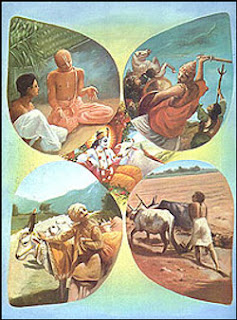Lokpal, Janlokpal, Jokepal, Sarkari Lokpal…. If we Google
these terms we are sure to be introduced to thousand’s of blogs, hundred’s of
articles, millions of comments. So, if so much has been written already on this
context, this article might get lost in oblivion, might not even receive any
views or might actually become a joke. But the thought that’s been lingering in
my mind for quite some time now urges me to put down them on this topic. My
views might be funny to some, nonsense to some other but for me it would remain
just too weird thoughts…
So, Lokpal is all about combating against Corruption, a
habit perceived to be the single most demeaning characteristic for the Indian
society. But to me and for all the like-minded friends it is not the only element
for the cancerous situation of the country. Even Caste system has been equally
challenging our development, our futuristic mindset and it has anchored our
progress to a cliff, which is far from our reach.
Corruption and even the Caste system is no less in
comparison in hurting India for a long time now. So, the weird thought is why
not Corruption and Caste combat with each other and the one that would remain
after this combat can be dealt with the ideas that are coming in from all the
corners to fight against Corruption.
Let’s make this simple, we all know how deep routed is Caste
system in India and how people deeply identify themselves to the community they
belong to. Down south this intensifies to a level where actors or celebrities
belonging to their community is only accepted and revered to no less than a god
and an actor belonging to another community is disrespected and mimicked. It is
also well known that many families revere their caste and community more and
they consider it more than their own kids, whether its due to the pressure from
the others or due to a fear they do not question back the authorities in that
community. And the authorities or the leaders of the community will keep
expressing their authority, as they know that, it’s the only way to keep the
community under their control.
If the Caste System is so deep routed and seems to be
becoming stronger day by day, why cant we utilise this system for doing some
good for the country? Solution is simple, rope in all the caste / community
heads and leaders and make an arrangement where in a person belonging to a
particular community if found guilty of Corruption; his family should be
expelled from the community. This will hit the bull’s eye and work for sure as
its well noted that this is one fear and pressure that every family in Indian
society feels deep inside their hearts and whatever it might be, they follow
the customs and traditions of their caste. It’s like come what may, sell
anything we have, do anything we can but caste’s custom and tradition should be
followed. If a person feels so pressurised that he can sell everything that he
has just to follow the customs of that community, why will he not restrict
himself / herself from indulging in Corruption?
This logically might not work for the high flung corruption
but will definitely work for the lower level corruption. Since, high net worth
Indian’s doesn’t really care about their communities any more but they know
well how to pressurise or appease their groups to support them.
This thought might sound as an archaic, arabic, or dictator
lead rules, or might seem to work in a country like North Korea etc. But, in
this context its not a law being passed, neither it’s a process where the government
is getting involved. Caste system is already well prevalent and the said
pressurisation is present across India, it’s like an unsaid rule we all follow
for being born into a particular community.
When the modern democratic measures of monitoring,
punishing and controlling the Corruption doesn't seem to work, the old Indian way
of controlling and punishing the bad in the society might just work. The old Indian way of group control, group pressure, village
authorisation, and community commandments has always worked for India, so why
wouldn’t it work now?
This idea works either way i.e., its good if individuals feel
pressurised and doesn’t indulge into Corruption. It would be even great if they
stop caring about their community since they care about their bribes more, then
this non-obedience towards the Caste System will help India in long run towards
its burgeoning progress.









